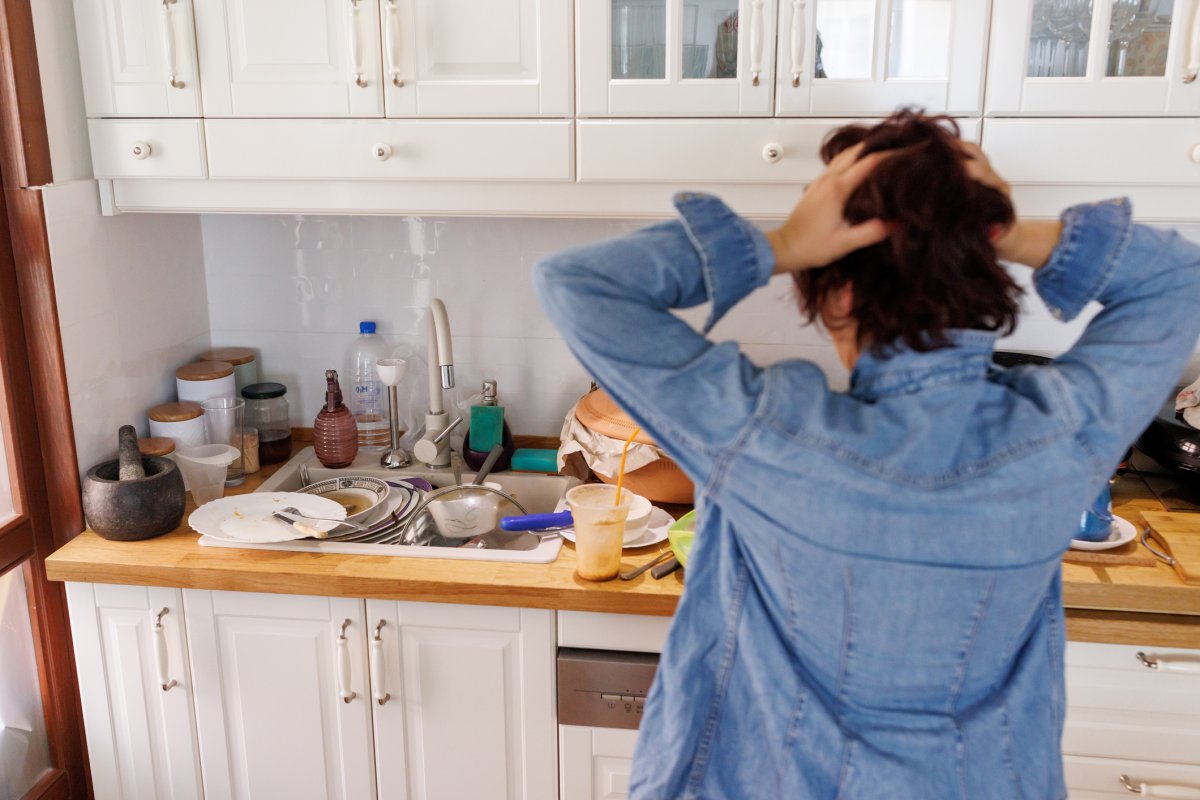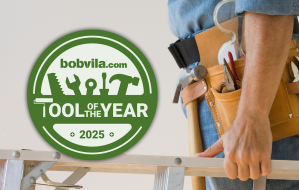

We may earn revenue from the products available on this page and participate in affiliate programs. Learn More ›
When we walk into our home, we want to feel comfortable and calm, like a retreat from the hectic world around us. But if our space is filled with clutter, we can feel overwhelmed, stressed, agitated, and even guilty or ashamed. With half of Americans admitting they have at least one room in their home that has been taken over by clutter, it’s helpful to find the best approach to tackle all that extra stuff lying around.
We tapped into the expertise of a couple of organizing professionals to discover the benefits of minimizing clutter, their top tips for how to minimize at home, and what may be preventing you from controlling the clutter taking over your space.
Benefits of Minimizing
Removing excess items from your home provides more than a cleaner, tidier, more spacious environment. In fact, the perks of decluttering include a boost in emotional wellness. “It gives you the mental capacity to live and enjoy life,” explains Matt Paxton, a downsizing and decluttering expert, speaker, radio personality, host of Filthy Fortunes, and author of Keep the Memories, Lose the Stuff. “The average person makes 35,000 decisions a day. Minimizing physical clutter substantially reduces the amount of items you have to take care of and reduces the number of decisions you have to make in a day. This reduced mental load allows you to enjoy your actual present life,” says Paxton.
This shift also saves you time and money. You’ll spend less when you stop focusing on buying so many items for your home, says Paxton. “Reducing the number of things you own will make cleaning and maintaining your home more manageable,” adds Lisa Munkvold, owner and professional organizer at Complete Clutter Control in Houston, Texas. “Not only does this save time, but it is also good for your health, as dust accumulates quickly when you have a lot of stuff.
Finally, you’ll feel less stressed and be able to truly enjoy where you live. “When you go through your home and get rid of the excess, you can make room for your favorite things,” says Munkvold. “And when you can see them and access them, you will use them more regularly, too!”

Tips for Minimizing
Here are some helpful tips for minimizing all the items that can collect in your home over the years, whether it be in your bedroom, kitchen, or other area.
1. Purge your home regularly.
Being consistent can make a huge difference. “Take some time each month to go through an area in your home and donate or toss items you no longer need, use, or want,” advises Munkvold. It is incredible what you can achieve in just a few minutes if you do it consistently.
There are various purging approaches, from the KonMari Method to Swedish Death Cleaning. Paxton recommends choosing a space that sets you up for success. Start small by conquering the most obvious items first, such as stacks of paper, expired food in the pantry, broken tools, and extra hangers you’ve been accumulating from the dry cleaners. Be sure to limit your purging time to no more than 30 minutes to avoid feeling overwhelmed and frustrated.
2. Prevent items from entering your house.
One of the easiest ways to control extra items from stacking up is to not let them through your front door in the first place. Once they sneak in, they are harder to get rid of. “Whether it’s a freebie from an event you attended, a pass-along from a well-meaning friend, or an unnecessary purchase, these items can quickly add up,” says Munkvold. “By taking a moment to assess if you truly need the item before acquiring it, you can minimize what enters your home.” Learn how to say “no thank you” to items you really don’t need.
3. Shift your gift wish list.
We are all grateful when we receive gifts like platters, vases, and sweaters from loved ones during the holidays and other celebrations throughout the year. However, many times these gifts aren’t what we really wanted or needed, and they start to take up too much space. Munkvold suggests gently letting people know that you prefer gifts that are either consumables or experiences. “Try to shift gifts towards items that will be used up rather than accumulated,” says Munkvold. “It’s just as enjoyable to receive tickets to a show as it is to receive yet another cute coffee mug.”
4. Practice mindfulness.
Another interesting tactic that most people probably don’t realize can be helpful is focusing on your life today as opposed to what happened in the past or planning for the future. “People tend to store a lot of things in their homes that either served them in the past or might serve them in the future,” notes Munkvold. “However, if you only have stuff that fits your life today, you will automatically eliminate a lot of excess.”
Paxton agrees and asks that people give themselves permission to say goodbye to items they don’t actually want. “You aren’t obligated to anything or any type of lifestyle other than the one you truly want,” says Paxton.
5. Say no to other people’s junk.
Between walking by a garage sale in your neighborhood and your parents downsizing, there are plenty of opportunities to acquire other people’s leftovers. While these freebies might be calling your name, they could also be contributing to all that clutter you are trying to cut back on. “Don’t let other people pawn their stuff off on you,” warns Munkvold. “Whether it is a well-meaning friend, a sentimental great aunt, or a child who just graduated from college, don’t let others pawn their extras off on you. Only have things around that serve the people that actually live in your house.”

What Might Be Holding You Back
Though it might seem simple to just throw away anything extra taking up space throughout your home, it can be a real struggle for some people. Here are some reasons that minimizing might not be coming so easily to you.
Guilt: Guilt is the number one challenge in minimizing, says Paxton. “You feel guilty for spending the money on the item, then you feel guilty for spending time away from your family or job or self getting rid of the item,” he explains. “We also feel guilty for getting rid of an item from a passed loved one.”
Fear: People tend to be afraid they will regret getting rid of an item or are worried they might need it in the future. “Nobody can tell the future, so of course there is a chance you might regret it, but the feeling of regret is usually temporary,” notes Munkvold. “Also, if you find yourself needing an item you purged after storing it for the last 10 years and never using it, you can always repurchase it.”
Emotional attachment: People often hold on to items because they are tied to a memory of a special time or person in their life, says Munkvold. “Keeping in mind that the memory remains even if you let the item go can be comforting,” she says. Consider taking a photo of a special item instead of keeping it.
Feeling wasteful: A common excuse people make is that they spent money on these items. “Yes, you spent money on it when you bought it, but keeping an item tucked away in the back of a closet won’t make that money magically appear again,” explains Munkvold.

Lack of time: While time might be a real issue for some, a common excuse that people make is they claim they don’t have time to declutter their home, but then they go out and purchase new items to add to the collections, says Paxton.
Decision fatigue: According to Paxton, some people are so busy with daily life that they don’t have the energy to make any more decisions. Therefore, they don’t even start decluttering.
Brutal honesty: Nobody wants to admit they were wrong. “When you realize you didn’t need the item that you spent time and money on, it’s hard to admit to yourself and others that you were wrong, so we just avoid decluttering altogether,” explains Paxton.
Physical limitations: Some homeowners don’t have the physical ability to actually pick up a box or bag and take it somewhere, says Paxton. This is a great opportunity to ask a friend or loved one for assistance in your minimization endeavor or to hire a professional organizer.
